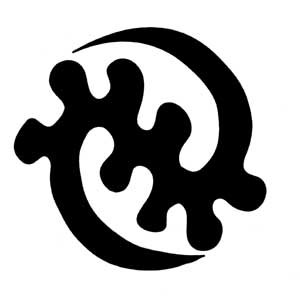Critics Argue That “Thug” Has Become the New “N-Word”
Aaron Jones | Staff Writer

Left: Canadian artist Justin Bieber has been described as a “misguided kid” in light of recent charges of DUI and assault of a limousine driver. Right: Richard Sherman’s post-game antics (particularly adrenaline-fueled yelling) were referred to as “thuggish” approximately 625 times. Is race a deciding factor for whom to label a “thug?”
Jan. 19, the Seattle Seahawks conquered the San Francisco 49ers 23-17, in the National Football Conference (NFC) Championship, sending them to the 2014 Super Bowl. 30 seconds were left in the game. With the 49ers at the Seahawks’ 18-yard line, quarterback Colin Kaepernick launched the ball swiftly to the end zone, where receiver Michael Crabtree was prepared with his hands open wide. Then Sherman happened. For the win, he leaped with Crabtree, tipped the pass back in-bounds to a teammate and ended the game for the 49ers. Almost instantly, in the midst of celebration, Richard Sherman was pulled aside by sportscaster Erin Andrews for a post-game interview.
“I’m the best corner in the game. When you try me with a sorry receiver like Crabtree, that’s the result you’re gonna get! Don’t you ever talk about me!” Sherman shouted aggressively, clearly still hyped up with adrenaline. The issue comes with the reaction that Sherman evoked from the media. IQ Media reported a significant spike in the usage of the word “thug” on television the following day. The company which monitors closed captioning reported the word “thug” was used 625 times. That’s more times than the word has been used on TV in the past three years.
What do you know about that thug life? Is it a term we embrace in the Black community as when Trick Daddy rapped “this is the life for me, baby cause I’m a thug,” or is it more of an undesired, derogatory reference we often get thrust upon us? The Seattle Seahawks reigned victorious in Sunday’s Super Bowl XLVIII. With all the excitement, the recent controversy surrounding cornerback Richard Sherman has died down. There was one monumental play that sent the Seahawks and Sherman to the Super Bowl, and one irreverent interview that caused a social media firestorm toward him, sparking discussion on what it means to be called a “thug.”
Many spectators considered Sherman’s actions on Jan. 19 as a display of poor sportsmanship. This is understandable, as his outburst was undoubtedly aggressive and boastful. But why is it that his actions caused so many people to associate him with being a “thug?” Some would argue that it was simply his demeanor, emphasized with the aggression and his towering, 6-foot- 3-inch, hulky build. But there is another factor at play, Sherman is Black.
In a follow-up interview on Jan. 22, Sherman spoke out about the thug references. “The only reason it bothers me is because it seems like it’s the accepted way of calling somebody the N-word nowadays. You fight it for so long, and to have it come back up and people start to use it again, it’s frustrating.” Sherman makes an important point with this statement, one worth the discussion it has received. Did any of the critics take the time to open a dictionary and read the definition of “thug” before referencing Sherman with it 625 times? If they had, they would have seen it defined as “a brutal ruffian” and “a violent criminal,” neither of which being a description Sherman fits. Had any of the masses of people who referred to Sherman as a “thug” known details about him aside from his rant, they would have seen that Sherman is quite the antithesis of what a “thug” is. Despite being from Compton, California, a city with a particular stigma, Sherman graduated second in his high school class and went on to graduate from Stanford University.
There are several public figures who have displayed similar, if not worse, acts of aggression, when they were not pumping full of adrenaline and coming off of a victorious moment in their career, who don’t cause the media to reference the word “thug” 625 times. They also happen to not be Black. Take Alec Baldwin for example. A renowned actor in the public eye for decades, he’s been involved in several incidents in recent years where he shouted and insulted paparazzi and a flight attendant, and has even been accused of assault. Another example could be the superstar Justin Bieber. He has been recorded jumping out of his car aggressively and communicating threats, throwing eggs at his neighbor’s home, and arrested on charges of DUI. He is consistently one of the media’s most talked about figures, and while he’s certainly under scrutiny, he isn’t labeled a thug. However, If we look back at last year’s Trayvon Martin case, the word “thug” began showing up in headlines once pictures surfaced of him smoking and wearing a grill.
Unfortunately it seems that within the media, a “thug” has become synonymous with being Black and aggressive and not specific to individuals who are destructive to their communities when being involved in violence and crimes like drug dealing and drive-by shootings. The media is in a state where it is important to know what it means to be a thug, and should be careful about who the label is applied to in the press.







